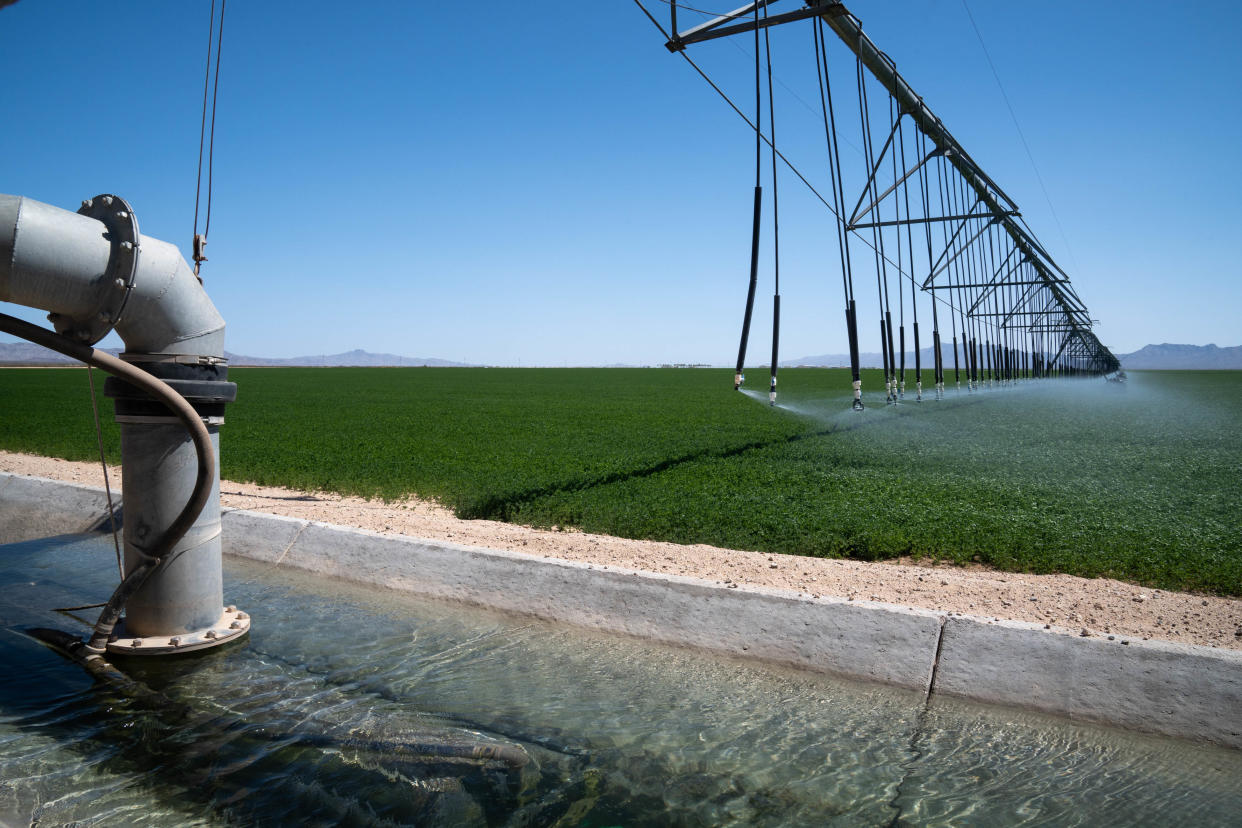Saudi firm played as a boogeyman, but it's not the only threat to rural Arizona's water

The Arizona Republic recently reported about the bipartisan outrage regarding foreign investors exploiting, or arguably squandering, Arizona’s water resources (“Arizona AG, governor candidates call for Saudi Arabian water leases investigation,” Aug. 30).
The anger is justified, but it is important to remember that this problem extends far beyond a single corporation growing alfalfa.
It is a statewide concern.
Though it is easy to focus on foreign actors, aggressive investor-owned outfits have been threatening water resources all over Arizona.
Equity firms, cities could drain rural Arizona
In Cochise County, for example, intensive drilling for corporate agriculture has jeopardized the livelihood of residents and imperiled small farms.
On the opposite corner of the state in Mohave County, so much water has been withdrawn for investor-owned large-scale farming operations that the future economic development of the region is in doubt.
Meanwhile, in La Paz County, a private equity firm is buying up land for the sole purpose of selling the water rights to a suburb of Phoenix.
This last example brings up another point. Fondomonte, the corporation which is the target of the candidates’ outrage, is using an aquifer that, according to the article, could be tapped “as a future water source for metro Phoenix and other urban areas.”
The controversy: Inside Arizona's sweet deal to a Saudi farm
The implication here is that the concern is not for the residents of La Paz County, but for a suburban town more than 150 miles away over mountains and desert valleys.
The residents of La Paz County have their own needs and their own vision of their future as a community, and these deserve at least some consideration in the discussion of water. The wells will be just as dry whether local water resources are monopolized by corporate farms or are redirected elsewhere.
Rural areas need the power to manage their water
The emphasis on foreign boogeymen and the needs of one metro area tends to ignore the larger problems here, chiefly the fact that the use of groundwater is largely unregulated in much of the state.
Rural communities are even limited in their capacity for land-use planning. Local governments in rural areas do not have the same tools for comprehensive planning available to them that those in Arizona’s urban counties do, so measures to control water use by limiting certain development are not feasible.
An effort to address this shortcoming in the last legislative session by creating a system of “rural management areas” to oversee local regulation of groundwater use stalled in spite of broad bipartisan support.
It calls for action on the issue from elected officials and community leaders across the state.
An appropriation of $440 million for conservation and water reliability projects, passed in the waning hours of the session, is a significant step. But a more comprehensive approach, including planning and regulation, is necessary to sustain whatever progress we can make.
This conversation must continue, and as Arizona revisits the way it manages this precious resource, we must include the empowerment of local communities to determine their water future.
Arizona native Tom Prezelski is a program manager for Rural Arizona Action, a nonprofit organization based in Coolidge that works to boost voter empowerment and civic engagement. He is a former state lawmaker. On Twitter: @tomprezelski.
This article originally appeared on Arizona Republic: Saudi firm isn't the only investor draining rural Arizona water

